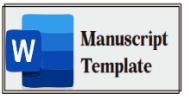FASILITAS DISKONTO (DISCOUNT WINDOWS) SEBAGAI INSTRUMEN MONETER DITINJAU DALAM PERSPEKTIF EKONOMI ISLAM
Abstract
Keywords
Full Text:
PDF (Bahasa Indonesia)References
Abdullah, B., & Saebani, B.A. (2014). Metode Penelitian Ekonomi Islam (Muamalah). Bandung: Pustaka Setia.
Ascarya. (2002). Instrumen-Instrumen Pengendalian Moneter. Jakarta: PPSK BI.
Chamid, N. (2010). Jejak Langkah Sejarah Pemikiran Ekonomi Islam. Yogyakarta: Pustaka Pelajar.
Karim, A. (2010). Ekonomi Mikro Islam. Jakarta: Rajawali Pers.
MUI. (2011). Himpunan Fatwa Majelis Ulama Indonesia Sejak 1975. Jakarta: Erlangga.
Mujahiddin, A. (2013). Ekonomi Islam: Sejarah, Konsep, Instrumen, Negara, dan Pasar. Jakarta: Rajawali Pers.
Mungin, B. (2013). Metodologi Penelitian Sosial & Ekonomi. Jakarta: Kencana Prenada Media Group.
Mustafa, I. (2014), Fiqih Mu’amalah Kontemporer. Metro: STAIN Jurai Siwo.
Pohan, A. (2008). Potret Kebijakan Moneter Indonesia. Jakarta: PT Raja Grafindo Persada.
PPPEI. (2015). Ekonomi Islam. Jakarta: Rajawali Pers.
Sudirman, I. W. (2011). Kebijakan Fiskal dan Moneter: Teori dan Empirikal. Jakarta: Mitra Wacana Media.
Sukirno, S. (2013). Makroekonomi Teori Pengantar. Jakarta: Rajawali Pers.
DOI: http://dx.doi.org/10.15548/al-masraf.v4i1.211
Refbacks
- There are currently no refbacks.

This work is licensed under a Creative Commons Attribution-NonCommercial-ShareAlike 4.0 International License.
View My Stats

